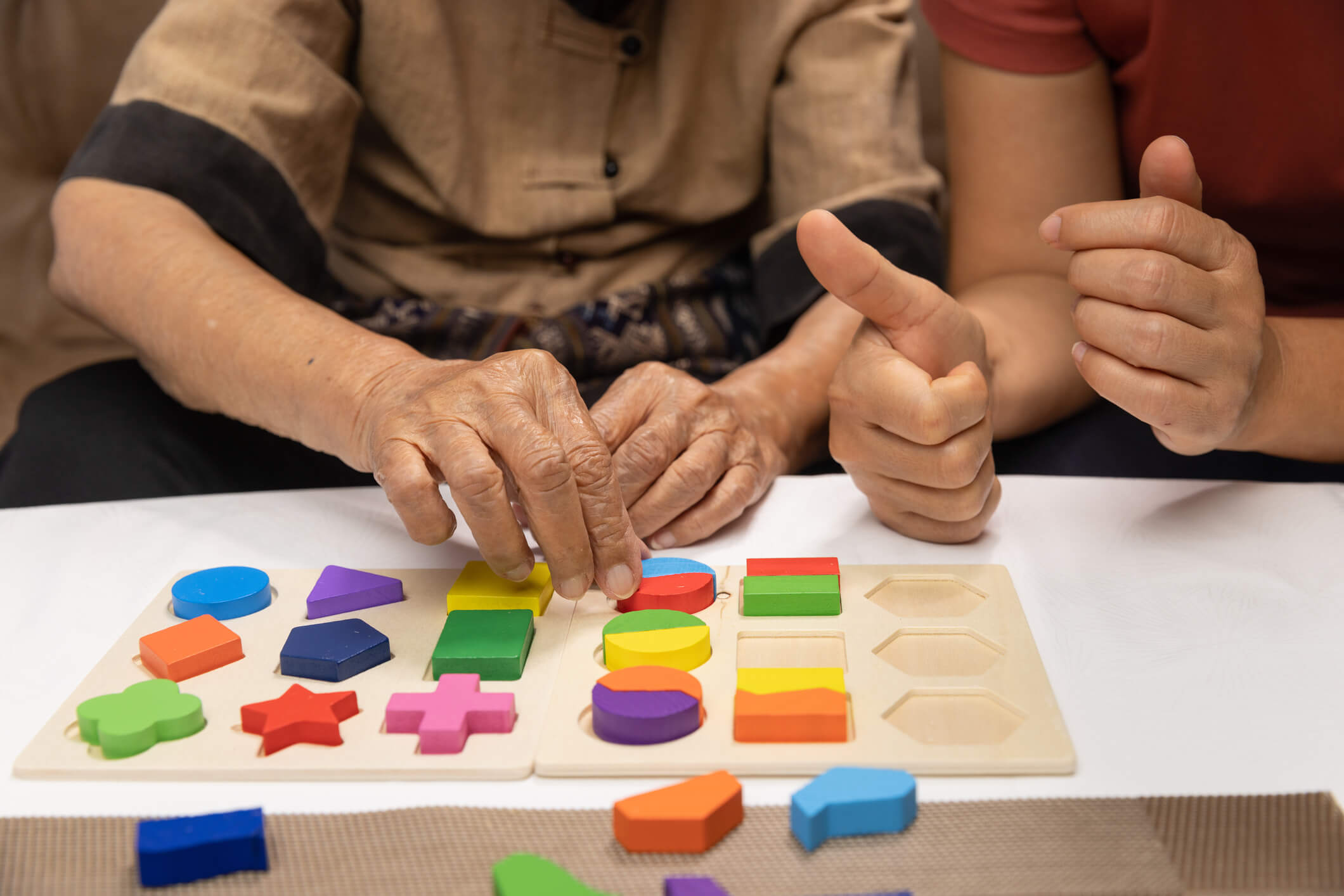Table of contents
Dementia poses significant challenges to the lives of seniors, affecting daily functioning and overall well-being. In the realm of senior living communities, Occupational Therapy (OT) has emerged as a powerful and effective approach to alleviate the impact of seniors experiencing memory loss and can lead to significant improvement in quality of life and the ability to age in place. Let’s explore the compelling data that underscores the benefits of Occupational Therapy.
Preserving Cognitive Function
According to a study published by the BMJ, Occupational Therapy interventions have demonstrated the ability to preserve cognitive function in individuals with dementia. This study highlighted significant improvements in cognitive abilities among participants engaged in tailored OT programs provided by licensed Occupational Therapists.
Enhancing Quality of Life
Data from the Alzheimer’s Association emphasizes that Occupational Therapy contributes to an improved quality of life for those suffering from dementia. By focusing on meaningful activities and personalized interventions, OT helps seniors maintain a sense of purpose, reducing feelings of frustration and isolation. There are many perceived benefits from OT therapy modalities such as music therapy and reminiscence therapy.
Reducing Behavioral Symptoms
Anxiety and depression are most commonly associated with dementia. A recent study revealed up to 71% of those with dementia also suffered from anxiety, reinforcing the need for effective forms of therapy to relieve symptoms. An article published by Taylor & Francis Online found that Occupational Therapy is effective in reducing behavioral and psychological symptoms associated with dementia. The analysis concluded that OT interventions led to a significant decrease in agitation, aggression, and other challenging behaviors.
Improving Daily Functioning
The International Journal of Geriatric Psychiatry published a research article showing that seniors participating in Occupational Therapy exhibited improvements in daily functioning. The research highlighted the importance of tailored interventions addressing specific challenges faced by individuals with dementia, promoting independence in daily activities.
Caregiver Satisfaction
The satisfaction of caregivers is a crucial aspect of dementia care. A study published by the American Journal of Occupational Therapy revealed high levels of satisfaction among caregivers whose loved ones received OT. Caregivers appreciated the practical strategies provided by OT professionals to manage daily challenges. Julia Baechle, MOTR/L, CDP, and Vice President of Clinical Quality and Support at EmpowerMe Wellness, has seen the direct impact OT has in the senior living communities for both the resident and the caregiver.
“One of the most important components of a care plan is caregiver education,” said Baechle. “It is important for them to understand the individual disease process, methods of improving communication, and ways to carry out the recommended activity set-up and approach to care, all while considering resident interest, abilities, and routines. With this approach to family and caregiver education, we see decreases in physical and emotional agitation, reduction in fall risk and isolation, increased participation in meaningful activities, and overall improved quality of life.”
For residents of senior living communities served by EmpowerMe Wellness, accessing occupational therapy is simple. EmpowerMe’s occupational therapists collaborate closely with the entire community care team to deliver OT services to residents in the environment where they feel most at ease.
Interested in learning more? Connect with someone from our team to learn more about EmpowerMe Wellness.



